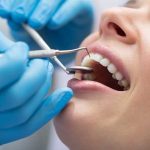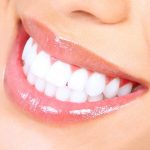Teeth Tingling: Discovering the Surprising Reasons Behind Your Dental Discomfort
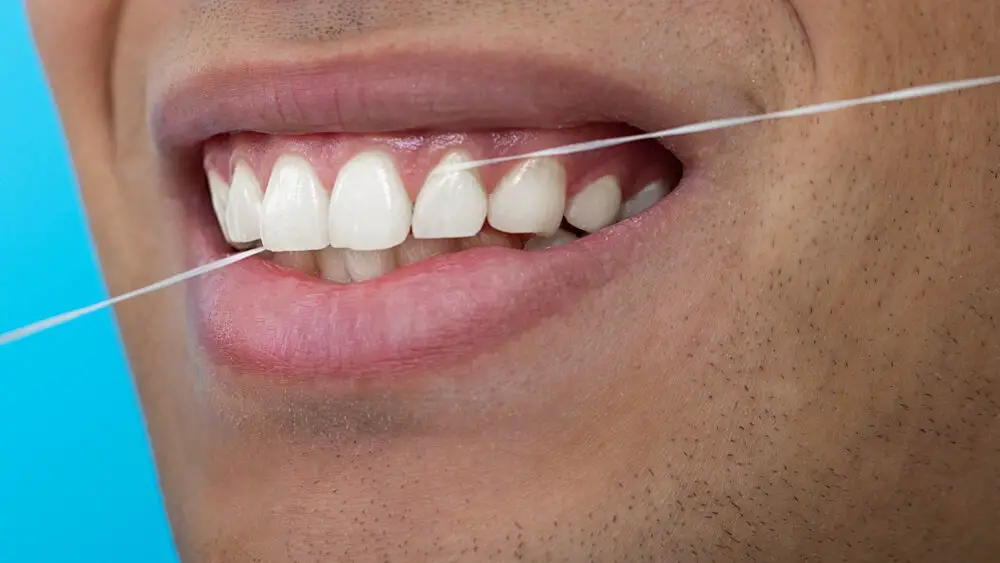
The feeling of teeth tingling can be quite an uncomfortable experience. It seems to come out of nowhere and can range from a mild irritation to a severe pain. Often, people assume that it is a problem with their teeth or gums, but that might not always be the case. There are a variety of reasons why your teeth might be tingling, and some of them might surprise you. In this article, we will explore the different reasons behind dental discomfort and what you can do to alleviate it. From common causes like tooth decay and gum disease to unexpected triggers like stress and acid reflux, we will cover everything you need to know about teeth tingling. By understanding the underlying causes, you can take the necessary steps to address the issue and prevent it from happening again in the future. So, let’s dive in and discover the surprising reasons behind your dental discomfort.
Teeth tingling is a sensation that can be described as a mild electric shock or a sudden chill that originates within the teeth or gums. This sensation can be accompanied by a slight numbness or a tingling feeling, and can be caused by a variety of factors. Tooth decay, gum disease, and teeth grinding are some of the common culprits of teeth tingling. In addition, certain foods and drinks, such as ice cream or hot coffee, can trigger this sensation. Teeth tingling can also be a symptom of more serious conditions, such as nerve damage or a temporomandibular joint (TMJ) disorder. If you experience teeth tingling, it is important to consult with your dentist to determine the underlying cause and receive appropriate treatment.
Understanding the causes of dental discomfort is crucial in maintaining good oral health. Dental discomfort can be caused by a variety of factors such as tooth decay, gum disease, tooth sensitivity, or even stress. Identifying the root cause of the discomfort will help dentists provide targeted treatment to alleviate the symptoms. Ignoring dental discomfort can lead to further complications, including more severe pain, infection, and ultimately tooth loss. Additionally, dental discomfort can significantly impact a person’s quality of life, affecting their ability to eat, sleep, and speak comfortably. Thus, it is essential to seek prompt dental care and identify the underlying causes of dental discomfort to maintain healthy teeth and gums.
Common Causes of Teeth Tingling

Teeth tingling can be an uncomfortable and concerning sensation, often causing individuals to wonder what may be causing this discomfort. There are many common causes of teeth tingling, including tooth decay, gum disease, teeth grinding, and sensitivity. Tooth decay can lead to the exposure of the inner layers of the tooth, which can cause tingling and sensitivity. Gum disease can also cause damage to the teeth and gums, leading to similar symptoms. Teeth grinding can wear down the enamel on the teeth, leading to sensitivity and tingling. Finally, sensitivity is often caused by exposure of the tooth’s inner layers due to a variety of factors, such as brushing too hard, consuming acidic foods and drinks, or gum recession. It is important to identify the cause of teeth tingling in order to properly treat the condition. Treatment options may include dental procedures such as fillings or root canals, as well as lifestyle changes such as avoiding acidic foods and drinks or wearing a mouthguard to prevent teeth grinding. Maintaining good oral hygiene practices, such as brushing and flossing regularly, can also help prevent many of the common causes of teeth tingling. If you are experiencing teeth tingling, it is important to speak with your dentist to determine the underlying cause and develop an appropriate treatment plan.
Tooth decay and cavities are common dental problems that affect millions of people worldwide. Tooth decay is caused by the buildup of plaque on the teeth, which contains harmful bacteria that produce acids that eat away at the tooth enamel. Over time, this can lead to the formation of cavities, which are small holes in the teeth that can cause pain and sensitivity. Cavities can be treated with fillings or dental crowns, but if left untreated, they can lead to more serious dental problems such as infections and tooth loss. Preventing tooth decay and cavities requires good oral hygiene practices such as brushing and flossing regularly, eating a healthy diet, and visiting the dentist for regular checkups and cleanings.
Gum disease and gingivitis are two common dental problems that affect many people worldwide. Gum disease is a severe condition that occurs when bacteria build up in the mouth and cause inflammation or infection in the gums. This can lead to tooth loss and other serious health problems if left untreated. Gingivitis, on the other hand, is a milder form of gum disease that causes redness, swelling, and bleeding in the gums. It is usually caused by poor oral hygiene, such as not brushing or flossing regularly. Both gum disease and gingivitis can be prevented by maintaining good oral hygiene habits, such as brushing twice a day, flossing daily, and visiting the dentist regularly for cleanings and checkups.
Teeth grinding, also known as bruxism, is a common dental condition that causes one to grind or clench their teeth unconsciously, especially at night. This condition can result in serious dental problems, including tooth sensitivity, jaw pain, headaches, and damaged teeth. Teeth grinding can be caused by stress, anxiety, sleep apnea, or misaligned teeth. It is important to address this condition as soon as possible to prevent any further damage to your teeth and mouth. Treatment options may include wearing a mouthguard, stress management techniques, and dental correction procedures. If you suspect that you may have bruxism, it is important to visit your dentist for a proper diagnosis and treatment plan.
Acidic foods and drinks can be a major contributor to dental discomfort, causing a tingling sensation in the teeth. These types of foods and drinks have a low pH level, which can erode the enamel on your teeth, making them more sensitive to hot or cold temperatures. Common acidic foods and drinks include citrus fruits, vinegar, soda, and sports drinks. It’s important to be mindful of how often you consume these items and to rinse your mouth with water after consuming them to help neutralize the acid. Additionally, using a toothpaste specifically designed for sensitive teeth can help to alleviate the discomfort caused by acidic foods and drinks.
Tooth sensitivity is a common dental problem that affects millions of people worldwide. It is characterized by a sharp, sudden, and often painful sensation that occurs when the teeth are exposed to hot, cold, sweet, or acidic foods and drinks. The root cause of tooth sensitivity varies from person to person, but it can often be attributed to the loss of tooth enamel, gum recession, or tooth decay. Other factors that can contribute to tooth sensitivity include aggressive brushing, tooth grinding, and certain dental procedures such as teeth whitening. While tooth sensitivity can be uncomfortable and disruptive, it is usually treatable with proper dental care and lifestyle changes.
Surprising Causes of Teeth Tingling
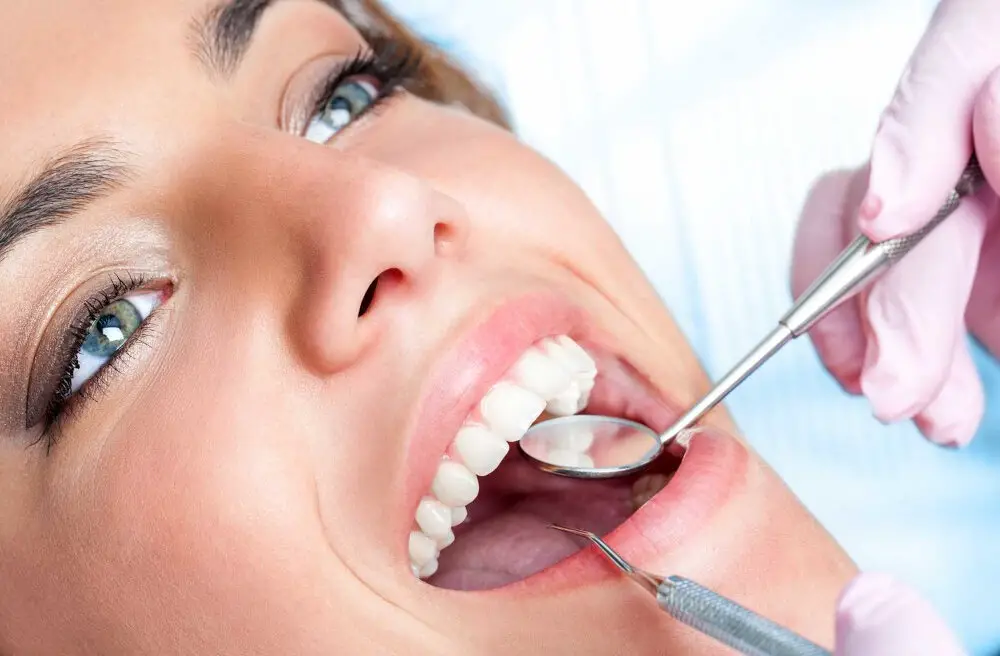
Teeth tingling is a common dental complaint that can be caused by a variety of factors. While some of these factors, such as tooth decay or gum disease, are well known, others may come as a surprise. One surprising cause of teeth tingling is sinusitis. When the sinuses become inflamed or infected, they can put pressure on the roots of the upper teeth, causing a tingling sensation. This can be particularly noticeable when bending over or lying down. In some cases, treating the underlying sinus condition can help to alleviate the tooth tingling. Another surprising cause of teeth tingling is acid reflux. When stomach acid flows back up into the esophagus and mouth, it can erode the enamel on the teeth and cause sensitivity or tingling. This can be especially common in people who suffer from chronic acid reflux or GERD. To prevent this type of tooth tingling, it is important to manage acid reflux symptoms with lifestyle changes and/or medication. Additionally, maintaining good oral hygiene habits, such as brushing and flossing regularly, can help to protect the teeth from acid erosion.
Sinus infections can cause unexpected dental discomfort, including teeth tingling. These infections occur when the tissue lining the sinuses becomes inflamed due to a viral or bacterial infection. The sinuses are located near the upper teeth, and when they become swollen, they can put pressure on the teeth and cause a tingling sensation. Other symptoms of a sinus infection can include a runny or stuffy nose, facial pain, and a headache. Treating the underlying sinus infection is crucial in relieving dental discomfort and preventing further complications.
Vitamin deficiencies can be a significant cause of dental discomfort, including teeth tingling. Lack of vitamin D can lead to tooth decay and gum disease, while a deficiency in vitamin B12 can cause oral sensations like tingling and numbness. Vitamin C deficiency can cause bleeding gums, which can lead to tooth loss if left untreated. These deficiencies can often be easily treated through changes in diet or supplements, but it’s important to see a healthcare professional to properly diagnose and treat any underlying deficiencies.
Medications can be a surprising culprit behind dental discomfort and tooth tingling. Certain medications, such as those used to treat hypertension and heart disease, can cause dry mouth which can lead to an increase in dental decay and gum disease. Additionally, some antibiotics can cause discoloration of teeth, while others can cause a metallic taste in the mouth. It’s important to discuss any medication use with your dentist to ensure that they are aware of any potential side effects or interactions that could impact your oral health. Taking care of your teeth and gums is essential for overall health, and being mindful of the impact that medications can have is an important step in maintaining good oral hygiene.
Pregnancy is a beautiful journey that brings about numerous changes in a woman’s body, including her dental health. During pregnancy, hormonal changes can lead to an increase in blood flow to the gums, making them more sensitive and prone to inflammation. This often results in gingivitis, a common form of gum disease characterized by redness, swelling, and bleeding. Additionally, the increased acidity in the mouth due to morning sickness can erode tooth enamel, leading to dental decay. It is essential for expectant mothers to maintain good oral hygiene and visit their dentist regularly to prevent and treat any dental issues that may arise during pregnancy.
Diabetes is a chronic disease that affects the body’s ability to produce or use insulin, a hormone that regulates blood sugar levels. The condition can lead to a range of health complications, including nerve damage, cardiovascular disease, and kidney damage. Interestingly, diabetes can also impact dental health, causing symptoms such as tooth decay, gum disease, and teeth tingling. This is due to the fact that high levels of blood sugar can weaken the body’s immune system, making it harder to fight off infections and bacteria in the mouth. It’s important for people with diabetes to maintain good dental hygiene and visit their dentist regularly to prevent dental complications.
Prevention and Treatment of Teeth Tingling
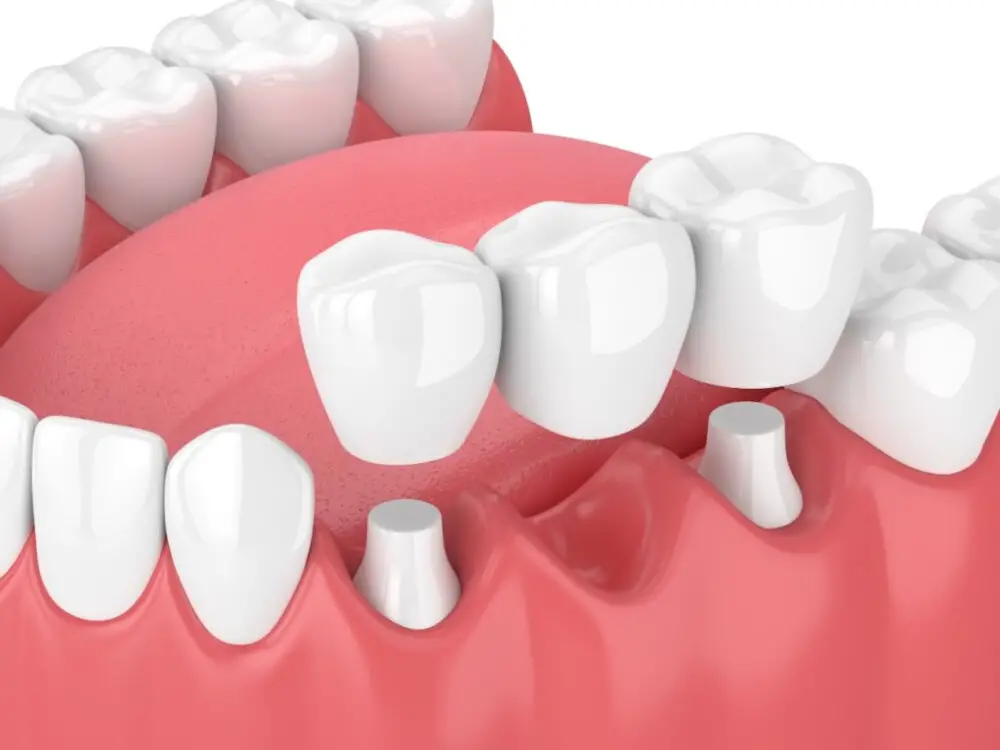
Teeth tingling is an uncomfortable sensation that can be caused by a variety of factors, including dental issues, nerve damage, and poor oral hygiene. Fortunately, there are several ways to prevent and treat this condition. One of the most effective ways to prevent teeth tingling is to maintain good oral hygiene. This includes brushing your teeth twice a day, flossing regularly, and using mouthwash to kill bacteria that can cause tooth decay and gum disease. In addition to good oral hygiene, it is important to avoid foods and drinks that can cause tooth sensitivity. This includes acidic foods and drinks, such as citrus fruits, soda, and wine, as well as hot and cold foods and drinks. If you do consume these items, it is important to wait a few minutes before brushing your teeth to avoid damaging the enamel. If you are experiencing teeth tingling, there are several treatment options available. This may include desensitizing toothpaste, which can help to reduce sensitivity by blocking the pathways that lead to the nerves. Additionally, your dentist may recommend a fluoride treatment or a dental sealant to help protect your teeth and reduce sensitivity. Finally, in more severe cases, your dentist may recommend a root canal or other dental procedure to address the underlying cause of your teeth tingling.
Regular dental checkups and cleanings are essential in maintaining good oral health. Not only do they help prevent cavities and gum disease, but they also allow for early detection of any dental problems. During a dental cleaning, the dental hygienist removes plaque and tartar buildup that cannot be removed by regular brushing and flossing. This helps to prevent the development of cavities and gum disease. In addition, dental checkups include a thorough examination of the teeth, gums, tongue, and other areas of the mouth to check for any signs of oral cancer or other dental problems. By keeping up with regular dental checkups and cleanings, you can ensure that your teeth and gums are healthy and strong, and that any dental problems are caught early to prevent them from becoming more serious.
Proper oral hygiene is essential for maintaining healthy teeth and gums. Brushing twice a day with fluoride toothpaste, flossing daily, and using mouthwash can prevent the buildup of plaque and bacteria that cause tooth decay and gum disease. It’s also important to limit sugary and acidic foods and drinks, which can erode tooth enamel and lead to sensitivity and discomfort. Regular dental checkups and cleanings can catch and address any dental issues before they become more severe. Taking care of your teeth and gums not only improves your oral health but also your overall well-being. So, make it a habit to prioritize dental care as a part of your daily routine.
Desensitizing toothpaste is a popular remedy for people experiencing dental discomfort, such as tooth sensitivity. This type of toothpaste works by blocking the tiny tubes (dentin tubules) that connect the outer layer of the tooth (enamel) to the inner layer (dentin). When these tubes are exposed due to receding gums, gum disease, or enamel erosion, they can cause pain or discomfort when exposed to hot, cold, or sweet foods and drinks. Desensitizing toothpaste contains active ingredients such as potassium nitrate or stannous fluoride that can penetrate the tooth and block the sensation of pain. While desensitizing toothpaste can provide temporary relief, it is important to visit a dentist to identify and treat the underlying cause of tooth sensitivity.
Avoiding acidic foods and drinks can be a helpful way to prevent dental discomfort such as tooth sensitivity. Acidic substances can erode the protective enamel layer on our teeth, which can expose the underlying dentin layer and make our teeth more sensitive to hot, cold, or sweet foods. Some common acidic foods and drinks include citrus fruits, tomatoes, coffee, soda, and wine. If you do consume these foods and drinks, it’s best to rinse your mouth with water afterwards and wait at least 30 minutes before brushing your teeth to avoid further enamel erosion. Additionally, incorporating more calcium-rich foods into your diet can help strengthen your teeth and reduce sensitivity.
Managing underlying health conditions is crucial when it comes to dental health. Certain medical conditions, such as diabetes, heart disease, and autoimmune disorders, can increase the risk of dental problems like gum disease and tooth decay. Therefore, it is important for individuals with these conditions to prioritize their oral health by brushing and flossing regularly, visiting the dentist frequently, and maintaining a healthy lifestyle. Proper management of these underlying health conditions can not only improve overall health but also prevent dental discomfort such as teeth tingling. It’s important to consult with a healthcare professional to develop a personalized plan to manage any underlying health conditions.
When to See a Dentist

Taking care of your teeth is an essential part of maintaining good overall health. Regular brushing and flossing are essential, but there are times when it’s necessary to see a dentist. If you experience any unusual pain or discomfort in your teeth or gums, it’s important to schedule an appointment with a dentist as soon as possible. Tooth pain and sensitivity are often signs of a more significant problem that requires professional attention. Additionally, if you notice any changes in the appearance of your teeth or gums, such as discoloration or bleeding, it’s crucial to see a dentist promptly. Another reason to see a dentist is if you have persistent bad breath or a foul taste in your mouth. Bad breath can be a symptom of several dental issues, including gum disease, cavities, or infections. A dentist can identify the underlying cause of your bad breath and recommend the appropriate treatment. Furthermore, if you have a history of dental problems or have undergone dental procedures in the past, you should visit a dentist regularly for routine check-ups and cleanings. These appointments can help identify potential issues before they become more significant problems, saving you time, money, and discomfort in the long run. By taking care of your teeth and seeing a dentist regularly, you can ensure that your smile stays healthy and beautiful for years to come.
Persistent or severe teeth tingling can be a sign of a more serious dental issue. The sensation of tingling in the teeth may be caused by a variety of factors including nerve damage, infection, or a dental injury. It is important to seek professional dental care if you experience persistent or severe teeth tingling, as this could be a warning sign of a more serious dental condition. A dental professional will be able to provide a thorough examination of your teeth and gums, and recommend the appropriate treatment to alleviate the discomfort and prevent future dental problems. In some cases, lifestyle changes such as reducing caffeine or quitting smoking may also be recommended to help improve overall dental health and reduce the risk of teeth tingling.
Bleeding or swollen gums are common dental discomforts that can indicate underlying issues such as gingivitis or periodontitis. Gingivitis is a mild form of gum disease caused by a build-up of plaque on the teeth, leading to inflammation and bleeding. Periodontitis, on the other hand, is a more severe form of gum disease that can cause bone loss and tooth loss. In addition to poor oral hygiene, other factors such as smoking, hormonal changes, and certain medications can contribute to gum problems. It’s important to address bleeding or swollen gums promptly to prevent further damage to the teeth and gums. Regular dental check-ups, proper oral hygiene, and a healthy diet can help keep gums healthy and prevent dental discomfort.
Tooth pain or sensitivity is a common dental issue that can range from mild discomfort to severe pain. It can be caused by a variety of factors, including tooth decay, gum disease, cracked teeth, or even just brushing too hard. The pain can be sharp, throbbing, or a dull ache, and it can make it difficult to eat, drink, or even talk. Sensitivity can also occur when the tooth enamel is worn away, exposing the underlying dentin. This can cause tingling sensations when eating or drinking hot or cold foods and beverages. It’s important to address tooth pain or sensitivity promptly, as it can lead to further damage and more serious dental problems if left untreated.
Changes in tooth color or shape are not unusual and can be caused by various factors. For instance, tooth discoloration can occur due to the consumption of certain foods and beverages, such as coffee, tea, and red wine, or due to aging, genetics, or poor dental hygiene. On the other hand, changes in tooth shape can be caused by tooth decay, trauma, or developmental abnormalities. It is important to consult a dentist if you notice any changes in your tooth color or shape, as it could be a sign of an underlying dental issue that needs to be addressed. Your dentist can recommend appropriate treatments, such as teeth whitening, veneers, or dental crowns, to restore your teeth to their natural color and shape.
A tingling sensation in your teeth can be caused by a variety of common and surprising factors. The most common cause is sensitivity, which can be triggered by hot or cold foods and drinks, acidic foods, or brushing too aggressively. However, other factors such as grinding or clenching your teeth, a dental infection or abscess, or even a sinus infection can also cause this discomfort. Surprisingly, vitamin deficiencies, hormonal changes, and certain medications can also play a role in teeth tingling. It’s important to identify the underlying cause of your tooth sensitivity to prevent further damage and discomfort.
It is crucial to seek professional dental care regularly to maintain optimal oral health and prevent dental discomfort. While daily brushing and flossing are essential, they are not enough to address all dental issues. A dental professional can identify and treat dental problems that may go unnoticed, such as cavities, gum disease, and tooth decay. Neglecting dental care can lead to more severe conditions, including tooth loss and chronic pain. Additionally, routine dental visits can detect signs of other health issues, such as diabetes and oral cancer. Seeking professional dental care is not only necessary for maintaining a healthy smile but also for overall well-being.
Maintaining good oral hygiene practices is essential to prevent dental discomfort. Brushing twice a day, flossing daily, and using mouthwash can help remove plaque and bacteria that can cause tooth decay and gum disease. Regular visits to the dentist for cleanings and check-ups can also help prevent and detect any potential dental issues. A healthy and balanced diet can also contribute to good oral health by providing essential vitamins and minerals for strong teeth and gums. Neglecting oral hygiene can lead to tooth sensitivity, pain, and even tooth loss, making it crucial to prioritize dental care in your daily routine.
Conclusion

In conclusion, teeth tingling can be a discomforting experience that could be caused by a variety of factors. From dental issues such as tooth decay and gum disease to medical conditions like sinus infections and acid reflux, it’s essential to identify the root cause of the problem. Regular dental check-ups, proper oral hygiene, and maintaining a healthy lifestyle can help prevent teeth tingling and other dental issues. Consulting with a dental professional is also crucial in determining the best treatment plan for your dental discomfort. So, don’t ignore any unusual sensations in your teeth, take action, and seek expert advice to keep your dental health in check.
